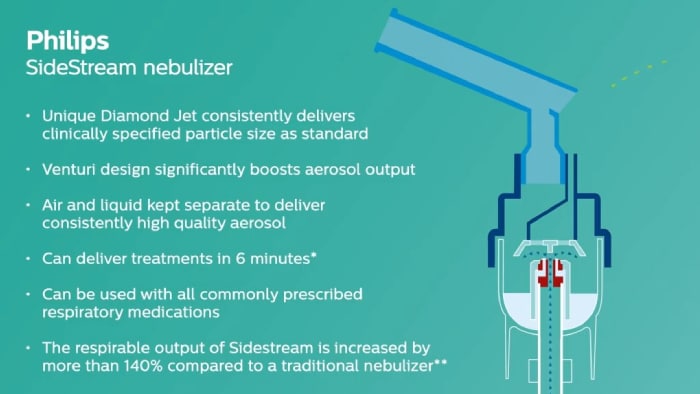Nebulizers and compressors
A nebulizer changes medication from a liquid to a mist so that it can be more easily inhaled into the lungs1.
What is nebulizer therapy?
If you or your child has been prescribed liquid medications for inhalation, nebulizers are used to change the liquid into a fine mist which allows it to reach deep into the lungs where it can be most effective.

What is a nebulizer?
There are three types of nebulizer: jet, ultrasonic and mesh.
What is a jet nebulizer?
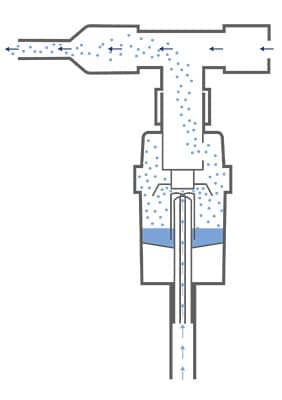
The nebulizer is the part of the system that changes the medication into a fine mist. The compressor provides a flow of air to the nebulizer, enabling it to create the mist. The SideStream nebulizers are highly efficient and can be used to nebulize most commonly prescribed respiratory medications.
What is an ultrasonic nebulizer?
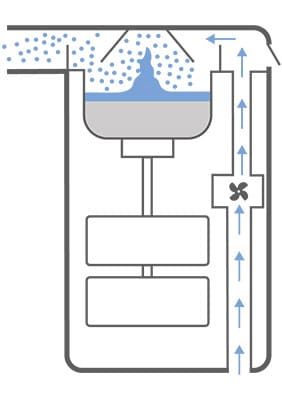
Ultrasonic waves pass through a reservoir of water driving energy through the drug to create the aerosol. They are not suitable for all commonly prescribed medications.
What is a mesh nebulizer?
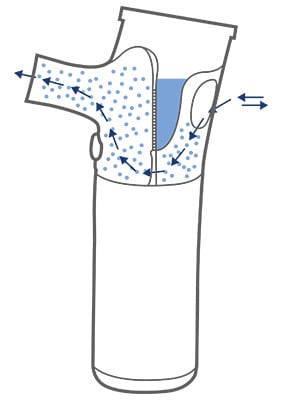
The vibrating mesh pulls the drug through the microscopic holes in the mesh, which creates the aerosol.
Proven SideStream
nebulizer technology
Disposable Reusable Please consult the Instructions for Use (IFU) for more information of how to use, clean and maintain your nebulizer.
The proven Philips SideStream nebulizers are designed to boost airflow, via an active venturi system, resulting in fast drug delivery and short treatment times. Featuring a unique diamond jet design which helps to minimize wear from SideStream will provide consistent drug delivery time after time, making Philips Sidestream nebuliser an ideal choice for aerosol drug delivery you can trust.
The importance of particle size

Grain of sand (90 microns)

Human hair (50 microns)

Aerosol particle (5 microns)
The fine mist created by a nebulizer is made up of thousands of particles. The particles that make up the mist are so small that they are measured in microns (µm) which is equal to a thousandth of a millimeter. To travel deep into the lungs, the particles that are inhaled need to be within the size range of 1 and 5 µm4. This is extremely small when you consider that the average "human hair" is around 50 µm. If the particles are not less than 5 µm it is unlikely that they will reach the lungs where they can be most effective.
What is a compressor?
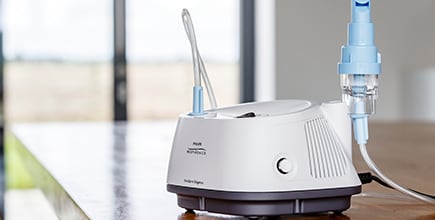
The compressor is a pump that draws in air and blows it out at high pressure into the jet or ultrasonic nebulizer to produce a fine mist of medication that can be inhaled. A compressor is electrically powered by the power outlet in your home or, if it is a portable compressor, it may also have a separate battery or charger.
How to use care and clean the Philips SideStream nebulizers and InnoSpire Compressors
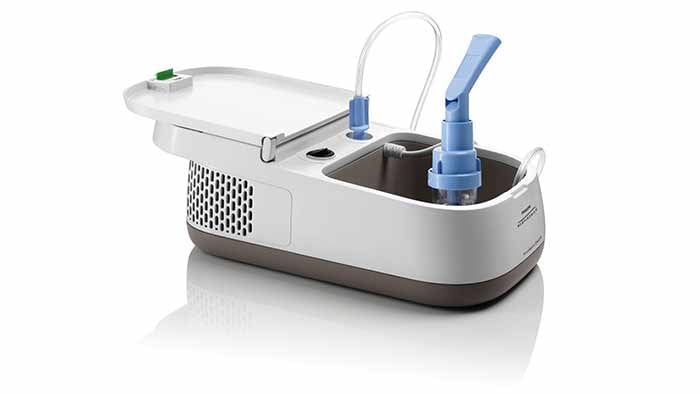
Frequently asked questions

Sign up to for more information from Philips

Are you a healthcare professional?
DISCLAIMER:
Information on this website is information only and should not replace the advice of a physician.
FOOTNOTES: [1] webmd.com. Asthma/guide/home-nebulizer-therapy#1. Accessed October 2017. [2] Ref: Loffertet al. Chest1994; Vol 106, 1788-92 Ref: Dennis. University of Bradford, UK Dec 1994 [3] Using 2.5ml Solution [4] ncbi.nlm.nih.gov. PMC/articles/PMC1765861/pdf/v052p000S4.pdf
